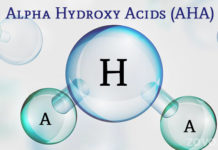
Are Our Sunscreens Really Water Resistant?

Water-resistant sunscreen products are much less effective when they are worn in the sea. the products that have been claimed to be water resistant showed a decrease in the sun protection factor (SPF) by up to 59% after being in the salt water for 40 minutes. This research has been welcomed by the Cancer Research UK, who warned the public that no sunscreen is effective 100%.
However, the manufacturers of sunscreen have called the research alarmist.
As per the latest guidelines, the sunscreen manufacturers are allowed to claim that a sunscreen is water resistant if there is a drop in the SPF by as much as 50% after taking two dips in the water for 20 minutes. These tests were performed using tap water.
However, serious flaws were found in these guidelines as highly chlorinated, fast-moving or sea water is generally available to people when they are on vacations. A reputed international brand of sunscreen showed a fall in the sun protection ability by as much as 59% after having an immersion for 40 minutes.
Another popular product showed a dip by 34%. In real time, it is estimated that the dip in sun protection is likely to be more due to several other factors like heat, reflections from sun, light, sweat, toweling and rubbing.
Overexposure to ultraviolet rays in the sunlight is one of the main reasons that causes skin cancer and can be prevented by sunscreen use.
However, the Cosmetic, Toiletry and Perfumery Association (CTPA) says that these results are flawed in itself and consumers should have faith in the water-resistant properties of their sunscreens.
Dr Chris Flower, a chartered biologist and director-general of CTPA, stated that the current testing guidelines work just fine and should not be challenged. He stated that a product with SPF 30 can prevent 96% of the sun rays from reaching the skin, and after a robust testing for water resistance will still provide protection against 93% of the sun rays reaching the skin. He further added that this decrease from 96% to 93% is not as dramatic decrease in sun-protection factor as shown by the other research group.
The group researching on the efficacy of sunscreen asked for tighter norms and demanded that the products must mention the SPF after getting immersed in water.
Cancer Research UK cautioned people to put generous amounts of sunscreen on the exposed parts of their bodies to have a complete protection from sun. Some of the precautions that can be taken to supplement the activity of sunscreen in providing protection against sun are as follows:
- Reapply the sunscreen regularly when out in the sun
- Cool off in the shade instead of relying solely on sunscreens alone
- Protect skin with T-shirts and hats










